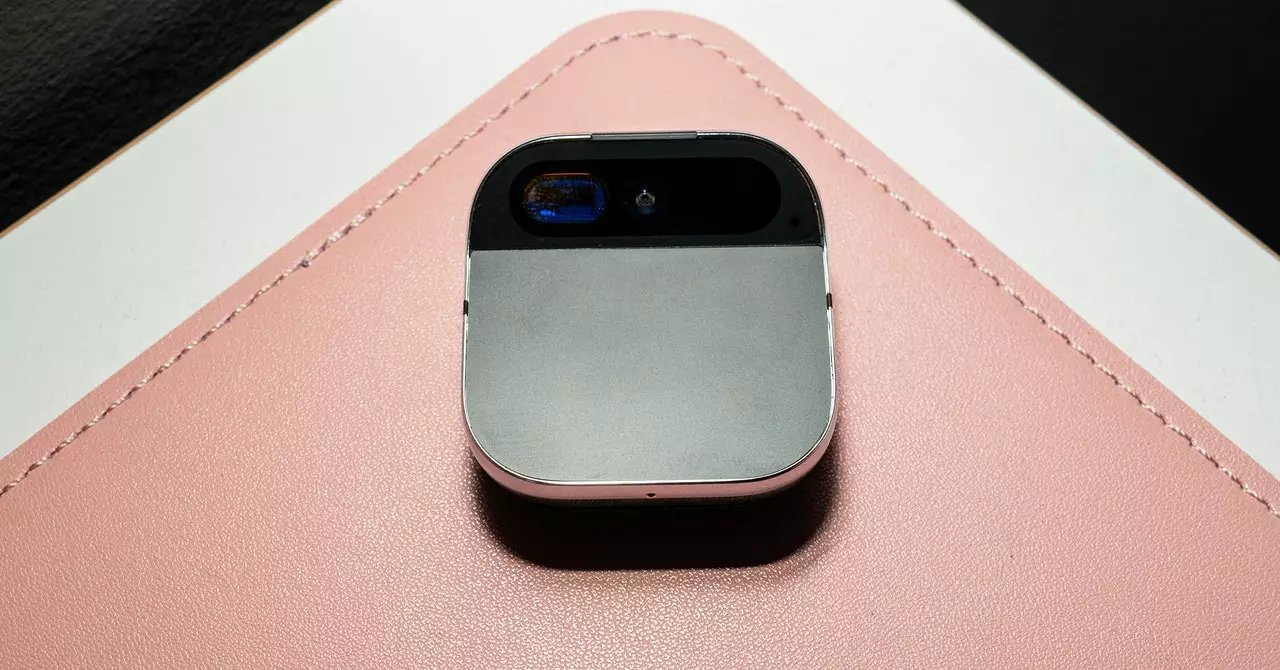In a tech landscape often dominated by rapid innovation and consumer tech hype, the story of Humane and its Ai Pin serves as a poignant cautionary tale. Initially heralded as the “next big thing,” the brand quickly garnered attention with its ambitions to disrupt the smartphone market. The centerpiece of this enthusiasm was the Ai Pin, which promised a conversion of artificial intelligence into a wearable format, complete with a laser-projected display capable of replacing smartphones. Yet, the ambitious venture has culminated in its demise, highlighting the chasm that can exist between promise and execution in the high-stakes world of tech start-ups.
Recently, it was announced that HP would acquire significant assets from Humane for $116 million. While this might seem like a lifeline, it actually marks the end of an era for a product that never managed to capture consumer enthusiasm. The acquisition includes over 300 patents, several key employees, including the company’s founders, and the highly ambitious Cosmos operating system. However, as the saying goes, what once seemed like a game-changer has unraveled into yet another instance of technical overreach.
The Ai Pin was revealed with high expectations in late 2023, yet its rollout in 2024 was tragically marred by flaws that overshadowed its potential. Critics pointed out a litany of issues, including frequent overheating, erratic AI performance characterized by ‘hallucinations’, and a host of features that left consumers underwhelmed. The intended utility of the projector, once imagined as revolutionary, turned out to be more irritating than helpful. Perhaps the most troubling aspect was the failure to deliver a robust product that could compete in a market saturated with established competitors.
With sales reportedly ceasing and refund measures on the horizon, the question arises: why did the Ai Pin fail? The ambitious vision behind the device appears to have outstripped practical design and user experience considerations. The disparity between an eye-catching concept and functional execution often leads to consumer disappointment, a lesson Humanity learned too late.
HP’s decision to acquire Humane’s assets signals a strategic pivot rather than a commitment to sustaining the Ai Pin as a consumer item. The company plans to integrate the Cosmos AI system into its existing products, thrusting itself into the spotlight of the AI revolution while distancing from the hardware failures that plagued the Humane project. This shift invites skepticism; can HP, known more for printers and computers, effectively navigate the AI landscape?
The revelation of HP IQ—a new innovation lab that aims to reimagine how smart features can enhance its product lines—could very well be an attempt to leapfrog over the missteps of its recent predecessors. While integration of AI capabilities could theoretically enhance user experience across HP’s offerings, there remains a palpable sense of urgency around not just innovation but strategic insight. Will HP be able to learn from Humane’s failures, or will it inadvertently walk the same path with its new acquisitions?
The downfall of the Humane Ai Pin intertwines with a broader narrative within the tech industry—one that underscores the importance of not just ambition but consumer trust and practical utility. As companies scramble to outpace one another in the race for technological dominance, there is an increasing need for innovation that does not sacrifice functionality for flashy concepts.
The Ai Pin saga serves as a reminder of the harsh realities of product development, particularly in sectors as volatile as consumer electronics. Many start-ups are driven by the fervor of new ideas, but without a sustainable and realistic approach to implementation, these ideas can quickly turn into costly failures.
As we look to the future, the decline of Humane and its Ai Pin presents lessons that extend beyond just a failed product. It reflects the challenges of innovation in a fast-paced industry and the importance of balancing audacious visions with practical realities. The tech world thrives on inspiration, but it must also ensure accountability that transcends the initial excitement of a product launch.
Ultimately, while HP may succeed in repurposing the assets acquired from Humane, consumer trust must be rebuilt from the ground up. Amidst the hype, it is the genuine delivery of utility, service, and reliability that will ensure the survival of future innovations. The narrative of the Humane Ai Pin should be seen not just as a failure but as an opportunity for reflection and growth for all involved in the dynamic world of technology.


Leave a Reply